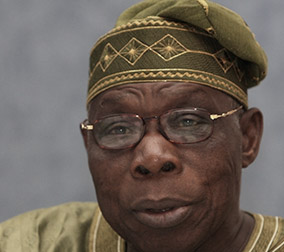By Chimezie Godfrey
In this era of divestments by the International Oil companies (IOCs) from Nigeria, indigenous energy companies with the right competences and wherewithal are natural partners to government in the quest to harness oil and gas assets, the Chief Executive Officer, Seplat Energy Plc, Mr. Roger Brown, has said.
The Seplat Energy CEO made this assertion at the Nigerian Association of Petroleum Explorationists (NAPE) Divestment Workshop themed, “The Big Sale: Opportunities in the Nigerian Oil & Gas Industry from Asset Divestments” held in Lagos on Thursday.
The event had industry players, regulators, government, financiers, oil servicing companies, sector analysts and the media, amongst others.
Mr. Brown, in his sponsorship presentation dubbed “Our Divestment Opportunities Journey, Lessons Learned, Best Practices and the Success Stories … What’s Next Post Post-Divestment – Vision 2030”, said the IOCs will continue to exit onshore and shallow water terrain of the Niger Delta, noting that the move should be considered as an opportunity for indigenization, and not a negative for Nigeria.
He said indigenous energy companies have a Nigeria investment appetite, and are not looking to leave the country, adding that they understand the country risk well and have a more practical approach to macro events with long term investment horizon.
According to him, Nigeria accounts for 1% of world daily oil production, but the potential in the sector remains vast. “The sector players need to work together more collaboratively to ‘grow the pie’. It is a shared risk and shared prosperity scenario. We should work together to grow and monetise the nations resources, particularly when worldwide demand for liquids will fall – at some point,” he added.
Mr. Brown explained: “Capital will only travel to and stay in Nigeria when the investment landscape is transparent and stable. Given the uncertainties, investors struggle to value the future –there is always some event that impacts value.
“Equities are extremely undervalued, foreign currency unavailability for exit is a barrier to inward investment. Debt lenders are uncomfortable if equity is scarce – don’t want to be the only solution, particularly if adverse events happen.”
The greatest business opportunity ahead, Mr. Brown noted, is to supply the right mix of energy to support Nigeria’s growth.
In doing so, he said all energy companies must make a positive social impact and contribute to Nigeria’s achievement of the United Nations’ Sustainable Development Goals (SDGs).
Narrating the Seplat energy transition story, Mr. Brown said Seplat Energy is developing its upstream business by selectively expanding its asset base, optimising the gas/oil mix, increasing production, reducing costs and carbon intensity, and increasing revenue assurance by diversifying routes to market.
For midstream gas, he said the company is committed to the development of Nigeria’s gas resources to accelerate the replacement of diesel and biomass and support economic growth through the supply of reliable, low-cost energy, adding that Gas-to-power provides baseload electricity to support renewables.
For new energy, Mr. Brown said Seplat Energy remains committed to achieving a world-class capability in renewable energies, through the development or acquisition of new skillsets that open up new and profitable markets.
In the quest for success leveraging the divestment opportunities in-country, Mr. Brown maintained that crude oil theft on export pipelines should be dramatically reduced/eliminated; cash call payment should be made in advance of spend; gas market should be fully market-driven – willing buyer and willing seller scenario; there should be clear position of government on divestment processes with a strong adherence to existing laws whilst embracing the spirit of the Petroleum Industry Act (PIA); and there should be currency stability with robust macroeconomic policy.
He said more financing institutions should be willing to lend to Nigerian businesses, adding that there is the need for expansion of African banks alongside African development banks.
Also present at the workshop were: Dr. James Edet, NAPE President; Engr. Gbenga Komolafe, Chief Executive Officer, Nigerian Upstream Petroleum Regulatory Commission (NUPRC) represented by Mr. Abel Nsa of the Commission; Austin Avuru, FNAPE, Executive Chairman, AA Holdings; Mr. George Osahon, FNAPE, Chairman Energia; Mr. Chike Nwosu, Chief Executive Office, Waltersmith Petroman Oil limited; Mrs. Ireti Samuel- Ogbu, Managing Director Citibank Nigeria Limited; Dr. Layi Fatona, FNAPE, former Managing Director ND Western; Dr. Ebi Omatsola, Non- Executive Director, Conoil Plc, among others.




